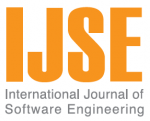Vol 4 No.1
Papers
ABSTRACT Medical staff in the Intensive Care Unit (ICU) need to interpret the high volumes of noisy data generated from the monitors attached to their patients. In this paper we propose a software architecture which processes the ICU monitor data to remove clinically insignificant events and to provide enhanced clinical decision support to ICU staff in order to improve the quality of patient care by giving accurate summaries. Our architecture has been tested on three datasets from an adult ICU and six datasets from a neonatal ICU and the results are very encouraging.
ABSTRACT Software developers consider object-oriented frameworks as one of the most promising software development tools. Their use can shorten development time and improve productivity as well as quality of developed software. The number and the technological maturity of frameworks achieved a level, which provides to developers a reliable development environment. However, still many frameworks fail, and so do many framework based software development projects. This article presents basic knowledge needed for understanding success of frameworks and addresses key factors which impact their success. The main outcomes of the research described in the article are technological and sociological factors, for which we presume that positively influence developers’ attitude toward using frameworks and thus their success. The results of our exploratory study could help software practitioners and researchers in developing more successful frameworks and with evaluation of existing frameworks as presented in the practical application of the article’s findings.
ABSTRACT The Personal Software Process (PSP) has begun to be an attractive topic in the software engineering field, and since its establishment, the industry has been looking forward for field studies implementing such framework. While there are published reports on the teaching of PSP in classroom settings, little field studies have been conducted on the implementation of PSP in industry, especially in organizations adopting the widely used framework - the Capability Maturity Model (CMM/CMMI). In this case study, we will explore implementing some of the PSP practices in a high maturity organization using the CMMI, measuring the benefits and the implications for those practice in improving the quality of work products and/or products in this kind of organizations. Results showed that incorporating PSP practices within the process of the organization have improved the quality of work products and final delivery indicating major improvements in overall product quality (97.4% of defects were detected before delivery) and process yield (75% of defects were detected before testing).
ABSTRACT Accurate estimation of software development effort is critical in software engineering. The primary reason for cost estimation is to enable the client or the developer to perform a cost benefit analysis. The basic input for the cost models is size. In this paper we proposed a model on Takagi-Sugeno Fuzzy Logic for software cost estimation using fuzzy operator. The input is fuzzified by using two positive Triangular membership functions. Interval type-2 fuzzy logic and fuzzy operators are used to determine the firing intervals. The model deals efficiently with imprecise and uncertain input and enhances the reliability of software cost estimation. The estimated effort is optimized using the developed model and tested on NASA software projects on the basis of three criterions for assessment of software cost estimation models. A comparison of the all models is done and it is found that the developed models provide better estimation.
ABSTRACT Traditional systems development methodologies sometimes fall short in today’s business environments because they lack the flexibility required for most of today’s information systems projects. In response to this problem, so called "Agile" software development methodologies have been proposed and put to use. Although agile development appeared as a way to overcome the limitations of the traditional development methodologies, they faced some challenges when applied in specific problem domains. The concept of agility, which emphasizes human role in software development processes, is revolutionizing the systems analysis and design field as well as the software engineering field. However, the question that begs an answer is whether traditional systems development methodologies have no place in today’s fastpaced developments.
This paper demonstrates the extent to which agile software development methodologies can be combined with traditional approaches to information systems development, showing the advantages of combining agile and traditional approaches in the same project. The paper then proposes the "Tragile" framework, which is a hybrid framework that combines both traditional and agile development practices to serve the field of information systems development. The paper then presents a summary of a case study application to show how the Tragile framework had affected the development process in the selected project.
